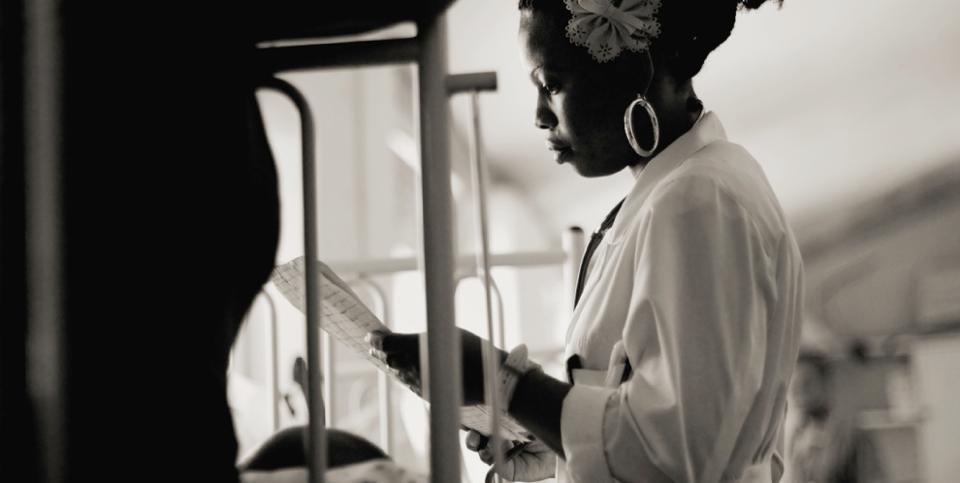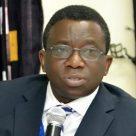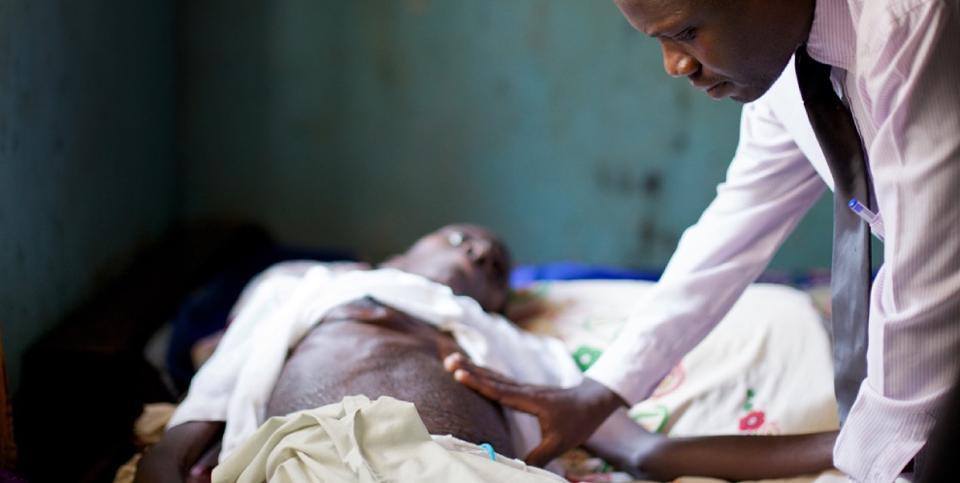On World Cancer Day, a Call for United Action in Africa
by Dr. Isaac Adewole
On World Cancer Day, A Call For United Action In Africa
Cancer is a worldwide problem. But in Africa, the disease poses a particularly complex set of challenges.
Many Africans consider cancer a death sentence and so don’t seek treatment for symptoms. Or they know they don’t have the money or adequate insurance coverage to pay for expensive care. Even those who do seek help may visit three or four doctors, who typically aren’t cancer specialists, before receiving an accurate diagnosis. These delays can be lethal.
That’s why, in Africa, 85 percent of our cancer diagnoses aren’t made until the disease is at a late stage. It’s a stark contrast to the picture in the United States and other developed countries, where 85 percent of diagnoses come when cancers are still at an early stage.
And so, too often in Africa, late means too late. African cancer patients are twice as likely as those in the United States to die from their disease.
We African health care providers are determined to change that. We’ve created a continental coalition to improve cancer care. We’re trying to educate people that cancer can be prevented, treated and cured, if diagnosed early, and we’re pushing governments to allocate more resources toward fighting cancer. But it’s a daunting task.
We need many more oncologists and treatment centers. Twenty countries in Africa lack even a single center with a radiation machine—even though radiation treatment is needed in more than half of all cancers. Much to my dismay, people who can afford to do so often leave my country, Nigeria, for treatment in London, India or South Africa.
We Can’t Wait for the Epidemic to Strike
Perhaps understandably, African governments often focus on the more vivid and evident problems posed by infectious diseases in many of our countries—diseases like HIV, Lassa fever and malaria. The tendency is to say, “These are the big problems. Cancer can wait.”
But if we don’t deal with cancer now, by the time it becomes an epidemic it will be too late.
Cancer is typically a disease of the middle-aged and of older people. As the average African lifespan increases—it has already risen by more than a decade since the turn of the century—we will see more cancers. Incidence is projected to double by 2050.
Even now, cancer is by no means rare in Africa. The probability that a woman living in Kampala or Harare will develop cancer by the age of 65 is about 20 percent lower than for a woman in Western Europe, but the woman in Africa is less likely to survive the disease. And so the time to build a better cancer treatment system is now—not after the number of cases has doubled.
Signs of Progress
To be sure, things are improving. I lead the African Cancer Coalition, which includes 110 oncologists from 13 countries in sub-Saharan Africa. We have made progress sharing knowledge, developing infrastructure and protocols, and building skills. In Africa we need government to play a huge part, and we are working to bring them on board. Construction of cancer centers is underway in six countries.
Last fall, we got more help when together with the American Cancer Society, the National Comprehensive Cancer Network® (NCCN®), the Clinton Health Access Initiative and IBM, we formed a new group called Allied Against Cancer. The alliance will seek to make progress in improving access to chemotherapy drugs.
Working with NCCN we have adapted NCCN Clinical Practice Guidelines in Oncology (NCCN Guidelines®) and NCCN Framework for Resource Stratification of NCCN Guidelines (NCCN Framework™) to create a library of 43 NCCN Harmonized Guidelines™ for sub-Saharan Africa.
The guidelines for five of the most common cancers across sub-Saharan Africa are available to doctors through a new online tool developed by IBM called the Cancer Guidelines Navigator. Oncologists based in sub-Saharan Africa can input a clinical description for a cancer patient such as tumor type, stage, biomarker status and prior treatments, then see the relevant treatment options.
The Tasks Ahead
What needs to happen next? For one thing, we are trying to educate governments that cancer need not be a death sentence if we invest in prevention and treatment. Governments must show their commitment by investing in cancer care facilities and infrastructure. We aim to meet with all of the continent’s ministries of health; thus far we have visited six of 54 countries.
Ideally our efforts will foster a sense of positive competition, as each country aims to do better than its neighbors. We still need to forge better information exchange with the French-speaking countries of Africa.
Governments can also help by making sure cancer fees are reimbursable. Last month, Nigeria announced that insurance must cover cancer care. While this is certainly a start, there are of course many people throughout Africa who remain uninsured.
Member governments of the African Union have committed to giving 15 percent of their budgets to health care, through the Abuja Declaration signed in 2001. But few have made good on that promise. They need to be pressed to do so.
Our main business is developing the capacity to treat these cancers. But we are also networking with NGOs and other groups to draw attention to the need for cancer prevention through screening and vaccination.
We know that such efforts can lead to remarkable results. Less than 50 years ago in the U.S., cervical cancer was the leading cause of cancer death for women. Now it is considered a treatable disease—and even largely preventable, with the advent of the HPV vaccine. Today, only 3 out of 100,000 women in the U.S. die of cervical cancer each year. In Africa, that figure is 23 out of 100,000.
By working together, we can reduce that number and greatly improve other African cancer statistics. We must continue urging government health ministries to make fighting cancer a resource priority. Their investments will pay off in terms of healthier, more productive societies. The cost of doing nothing would be even bigger for Africa.




